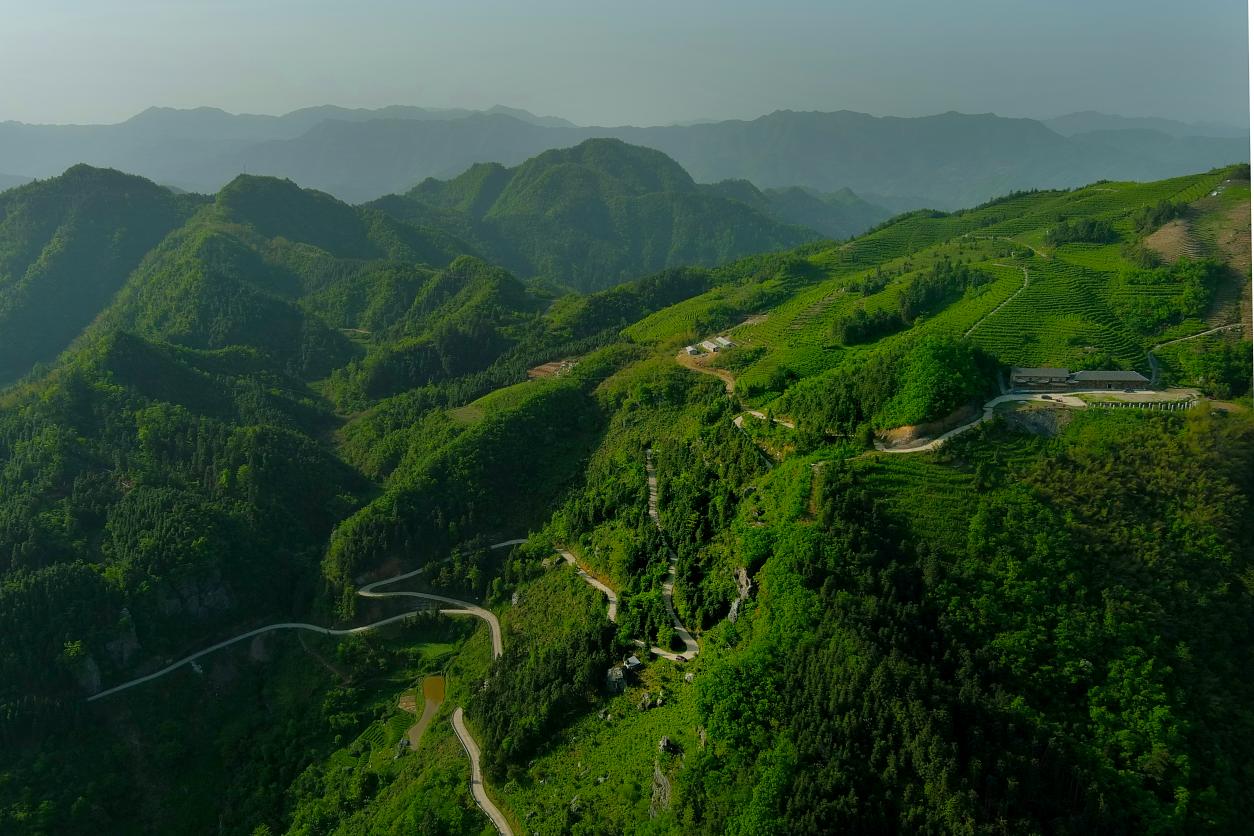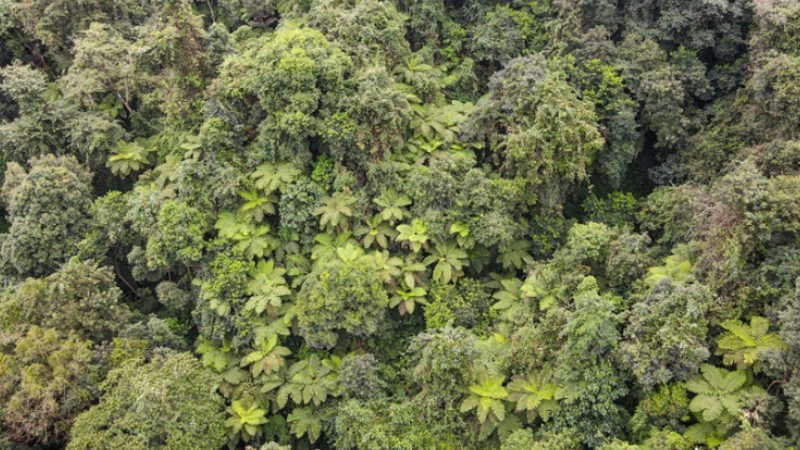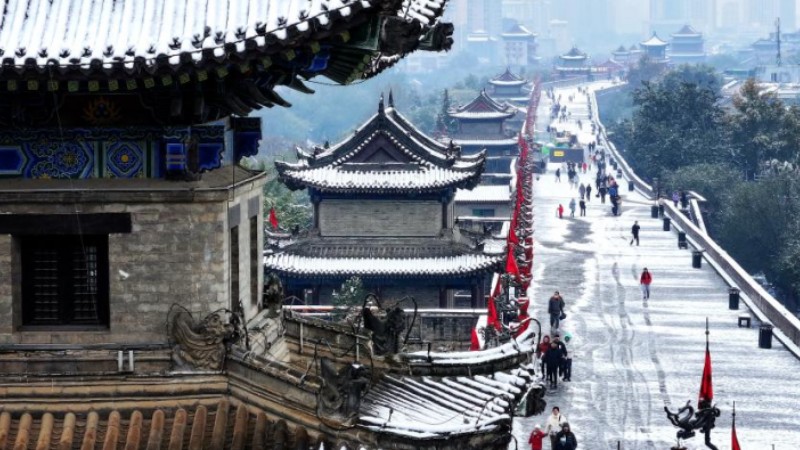Dark tea industry thrives in county of C China's Hunan
Known for its high-quality dark tea, or fermented tea, Anhua county in Yiyang city, central China's Hunan Province, has turned tea leaves into a prosperous industry.
Historical records document tea planting in Anhua as early as the Tang Dynasty (618-907). In the Ming Dynasty (1368-1644), Anhua dark tea was recognized by the central government.

Photo shows a tea garden of Anhua Yuntai Mountain Bajiao Tea Co., Ltd., a leading local tea company in Anhua county, Yiyang city, central China's Hunan Province. (Photo courtesy of the interviewee)
Two kinds of dark tea-making techniques were inscribed on the United Nations Educational, Scientific and Cultural Organization (UNESCO) Representative List of Intangible Cultural Heritage of Humanity.
Driven by technologies and talent, the dark tea industry has emerged as a sector for Anhua county to boost rural revitalization.
At the primary processing factory of the Wanlong dark tea industrial park, four fully automated production lines can complete the primary processing of 20 tonnes of fresh tea leaves every day.
"Mechanization has provided impetus for the large-scale production and the industrialization of Anhua dark tea," said Zhang Yi, director of the service center for the integrated development of the tea industry and tourism in Anhua county.
Anhua has newly built and renovated 30 automated, clean and standardized raw tea primary processing factories and dark tea deep-processing factories, significantly improving production efficiency, Zhang added.
Anhua has hired seven renowned tea experts including Chen Zongmao as consultants to develop the dark tea industry, carried out in-depth cooperation with the Tea Research Institute of the Chinese Academy of Agriculture Sciences and other tea research institutes, and established institutions including a dark tea school and a modern dark tea research institute to cultivate local "tea experts.”
In 2020, Liu Zhonghua, an academician of the Chinese Academy of Engineering, set up a workstation in Anhua. So far, the workstation has developed 14 types of dark tea products and five sets of new equipment, and applied for 15 patents.
Anhua has 210 tea production enterprises, including 75 above the designated size, 22 high-tech tea enterprises, seven provincial-level leading enterprises, and one national-level leading enterprise. The processing volume of tea leaves reached 86,000 tonnes in 2022, with the comprehensive output value and tax revenue hitting 23.8 billion yuan ($3.27 billion) and 150 million yuan, respectively.

Photo shows a scenic area in Anhua county, Yiyang city, central China's Hunan Province. (Photo/Xiao Sichen)
In recent years, Anhua has also found a new path to the integrated growth of the tea industry, tourism and culture.
Anhua is an important stop on the ancient Tea Horse Road. Leveraging its dark tea culture, it has held activities, including the red culture tourism festival and the dark tea culture festival.
Anhua has built several projects that help integrate the tea industry with tourism and culture, including a gallery that offers sightseeing, allows visitors to experience dark tea-making and spreads tea culture, a dark tea museum, and a scenic area.
Anhua strives to achieve a comprehensive output value of 50 billion yuan in the dark tea industry by 2026 and build a 100-billion yuan-level dark tea industry cluster by 2030.
Photos
Related Stories
- Zhuzhou in C China's Hunan prospers by cultivating tea-oil industry
- Small village in E China's Zhejiang thrives in bamboo flute industry
- Village in northwest China's Ningxia undergoes green transformation
- Bamboo industry boosts rural revitalization in county of E China's Jiangxi
- Zengcheng in S China's Guangzhou promotes featured industries
- Tea tradition brew dialogues between lawmakers, locals
- Oil-tea camellia brings prosperity to county in C China's Henan
Copyright © 2023 People's Daily Online. All Rights Reserved.









